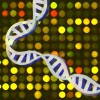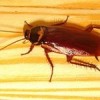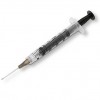Posts tagged medicine

Harnessing the power of bioinformatics in cancer research
Nov 22nd
One of the biggest challenges facing cancer researchers is that the disease varies so much from person to person. Even the same type of cancer – lung, brain, breast, colon, and so on – can be subtly different. This means that a therapy that works well in one patient may have no effect in another.
So researchers in the UK brought in the big guns – bioinformatics.
Cancer Research UK has set up seven British centers to start collecting 9,000 tumor samples from a wide range of cancer patients to create a DNA database. Researchers will extract DNA from these tumors and More >

Cockroach Brains as Medicine
Sep 22nd
Each day your body works to defend you against invaders. Harmful bacteria, viruses, and fungi can enter your system and cause diseases. In addition to relying on your immune system, it is helpful to avoid contact with germs by thoroughly washing your hands and keeping your environment clean.
How is it possible that some organisms have the ability to survive in some of the dirtiest places on earth? What survival mechanisms do they have that differ from ours?
Scientists ground up the brains and other nerve tissues from two species of insects, the American cockroach and the desert locust. Material extracted from More >

The Autism-Vaccine Link and Trusting Science
Feb 8th
Almost twelve years after its original publication, The Lancet medical journal has formally retracted the infamous paper by Andrew Wakefield and colleagues that had posited a link between vaccines and autism. This follows a partial retraction in 2004, and succeeds the stern judgment by the UK General Medical Council’s Fitness to Practise Panel “that several elements of the 1998 paper by Wakefield et. al. are incorrect, contrary to the findings of an earlier investigation.”
So that finally puts the autism-vaccination link to bed, right? Wrong. To read some responses in the blogosphere, one could assume that The Lancet had declared war on all More >

Pharmacowhat? Pharmacogenetics!
Oct 15th
Your genes affect not only how you look and your predisposition to disease, but it would appear that they also affect your responsiveness to different drug treatments following disease onset.
In the emerging field of pharmacogenetics, scientists study genome variations and correlate them with drug treatment response. For example, variations (also called polymorphisms) in genes encoding enzymes involved in drug metabolism have been found to affect the activation, deactivation, and toxicity of drugs used to treat cancer, heart disease, and psychiatric disorders. Recently, scientists found that DNA sequence can also be used to predict responsiveness to current Hepatitis C treatment (a More >

Blackburn, Greider and Szostak share Nobel for Telomeres
Oct 5th
Nobel Prize week kicked-off today with the announcement of the Prize in Physiology or Medicine. As predicted on these pages, Elizabeth Blackburn, Carol Greider, and Jack Szostak shared the award for discovering telomeres and telomerase. This is particularly good news for Cold Spring Harbor Laboratory, which was home to Carol Greider when she made the pivotal discovery of isolating the RNA gene that encodes for the telomeric template.
Carol Greider isolated the Telomeric Gene while at Cold Spring Harbor Lab
What is a Telomere? A telomere is a region (or cap) of repetitive DNA at the end of every chromosome that basically More >

Countdown to the 2009 Nobel Prizes…
Oct 1st
Nobel Prize week will kick-off on Monday (October 5th) with the announcement of the Prize in Physiology or Medicine. The prizes for Physics and Chemistry will follow on successive days, as the science world is treated to its annual brush with celebrity. Unlike the Oscars, however, we do not know the list of nominees and the whole election process is rather secretive. Deprived as we are of a list of formal candidates, I think it best to resort to wild speculation, conjecture, and rumor.
Physiology and Medicine…
The main contenders: Elizabeth Blackburn, Carol Greider, and (possibly) Jack Szostak The discovery: Telomeres and telomerase More >
